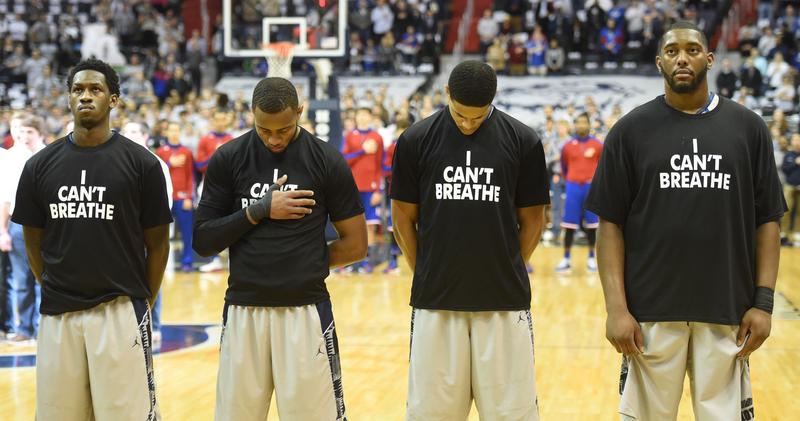
This week marks two years that Ramsey Orta has been in prison. The 27-year-old briefly became famous for documenting the 2014 death of Eric Garner while in a police chokehold on Staten Island. That video — and Garner's unforgettable cry "I can't breathe" — became a rallying call that brought some awareness to police violence against communities of color.
Orta himself has not fared well. His lawyer says following that video, he was repeatedly targeted by police. Just a month after Garner's death, Orta was arrested after officers said they saw him with a gun. Over the following years he was arrested multiple times, and in 2016 he pleaded guilty to possession of drugs and weapons. He's currently serving a four-year sentence at Fishkill Correctional Facility.
Orta's lawyer, Andrew Plasse, and Orta's girlfriend, Deja Richardson, said Orta has spent time in solitary confinement and remains under restrictions. Both say Orta has faced retaliation from corrections officers.
"Everybody knows who he is," Richardson said. "It's just messed up, because, you know he did something heroic, and it's like he's being blamed and he's being targeted as if he did something wrong."
Officials with the New York Department of Corrections dispute that. They say Orta's restrictions are the result of his own behavior.
Since that tape, there's been a greater push for police officer body cameras. NYPD Chief Terence Monahan said that's been a welcome change. "You know, it gets rid of that he-said-she-said, and we can go right to the video and see actually what did occur." He says the cameras have a deescalating effect on both officers and the people they interact with.
While Orta's story has largely faded from public view, the repercussions of his recording have had a national reach. Gbenga Ajilore, a senior economist at the Center for American Progress, says the video catalyzed public awareness.
"People saw actually how it happened," he said. "So for people who were on the fence, or who didn't really believe the stories or didn't know about the stories, this put it right in everyone's living room."
Gbenga Ajilore spoke with WNYC's Richard Hake.
